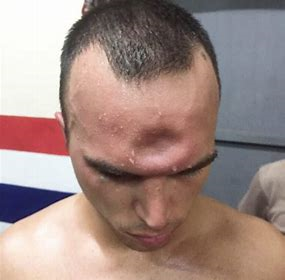Steve
Mostly Harmless
Amateurs, like white belts and kids, need to be protected from their inexperience and lack of technique . I think if you were to have made that same stop in a bout between two elite level fighter, it wiuld be a terrible decision .I take it the 'stiff upper lip' bit didn't stick though
If as a pro fighter you deliberately use techniques that will absolutely result in injury and harm to your opponent, however 'legal' those rules are then that fighter is behaving appallingly. Competitions aren't 'win at any costs', respect for your opponent should be and mostly is there. As I said before once you get a reputation as a 'dirty' fighter ( yes even if it means using legal moves) you will not be matched unless it's against someone the same as you. It's not 'pro wrestling' where even the 'baddies' don't actually hurt their opponents, 'baddies' simply don't get matched, promoters don't want them on their shows ( insurance claims) fighters don't want to have to take time off through injuries that could be avoided, and no one actually wants to see bones broken. Fanboys might think that's great but trust me once they've seen an injury like that they are the first to rush out to be sick.
On the subject of tapping out, I stopped a fight when a chap was in an armbar, he wasn't pleased because the pain he felt was only moderate but I could clearly see, through experience, that it was causing a lot of damage to his arm and if it went on there would be a serious injury. the fighter, an amateur, had a go at me as he got out of the cage. After another couple of fights I stepped out and he was back, this time apologising and his arm in a sling with the instruction to get it checked by a doctor, from the ringside medics. Fighters don't always know when to tap, it's not as obvious to them for a few reasons as it is to others. If it's a technique being used on them that they don't know, they again will not tap if it seems at face value they don't have to.

